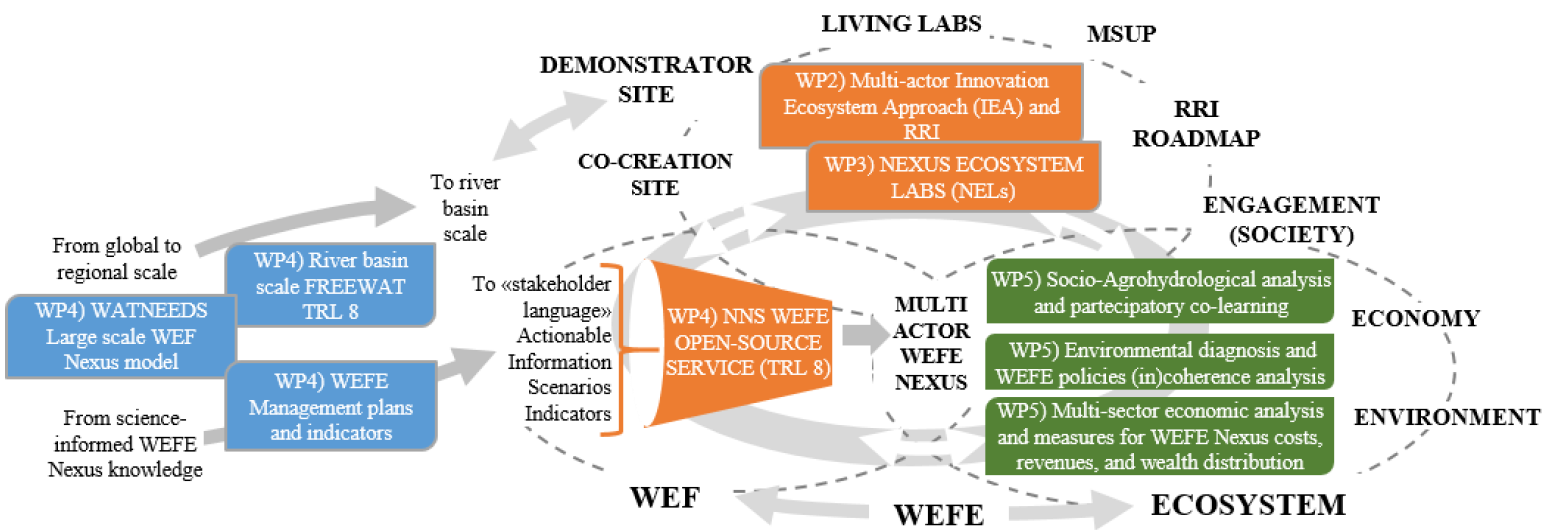NEXUS-NESS integrates trans-disciplinary datasets and scenarios available from consolidated breakthrough applied research and knowledge on WEFE Nexus (large scale WATNEEDS and river basin scale FREEWAT) models for building an operational NEXUS-NESS Service (NNS). NNS is deployed to empower stakeholders with actionable information demonstrating its operational use in tackling WEFE Nexus challenges. The multiple socio-environmental and economic benefits and the distributional impacts of WEFE Nexus approach are quantified and shared in “stakeholder language” to tackle the pressing needs and issues in real case conditions while promoting prevent fair and sustainable use of natural resources. NEXUS-NESS embraces the UfM strategy for the WEFE Nexus by employing a three-fold Ecosystem component (Environment, Economy and Engagement/Society) where the fundamental importance of valuing and preserving Ecosystem services is intrinsically linked with the societal and economic benefits of transitioning to a WEFE Nexus approach. NEXUS-NESS aims to test and prototype an operational WEFE Nexus service or NNS channelizing science-driven data, actions and indicators “like a funnel” into real case studies, for its operational use by stakeholder also employing integrated socio-environmental and economic assessment models. For its operational prototyping the NNS is deployed in four selected Nexus Ecosystem Labs (NELs) where project partners, stakeholders and policy makers will be enabled by Innovation Ecosystem Approach (IEA) and RRI Roadmap methods. NELs set-up and development will be also supported by a Multi Stakeholder and User Platform (MSUP). The following Figure depicts in more detail the major project components and the operational funnel mechanisms of the NNS.

The NEXUS-NESS core project components with: the ensemble of WEFE Nexus models supporting the production of WEFE Nexus Management Plans (WP4) that deliver , like a “funnel”, actionable information to tackle case study challenges. The Nexus-Ness Service (NNS) workflow is also depicted supported by the Innovation Ecosystem Approach (IEA) empowered by RRI (WP2) for validating in the Nexus Ecosystem Labs (WP3) the NNS also considering socio-environmental and economic benefits (WP5) of a WEFE Nexus approach.
